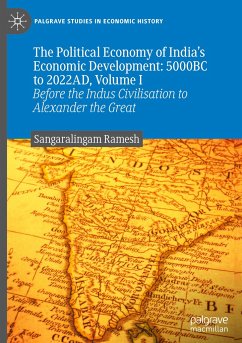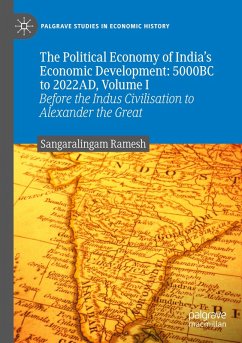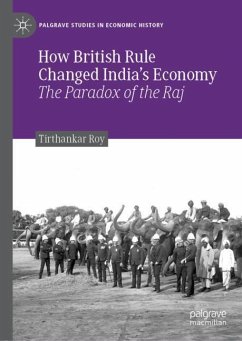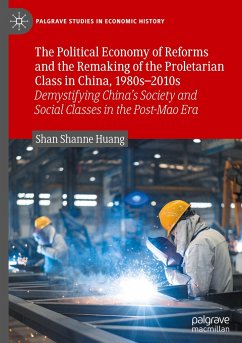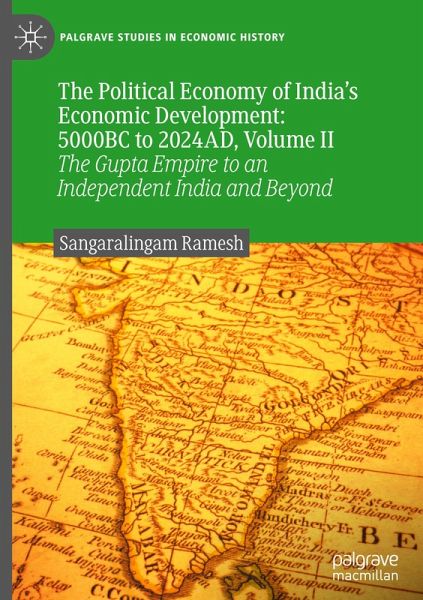
The Political Economy of India's Economic Development: 5000BC to 2024AD, Volume II
The Gupta Empire to an Independent India and Beyond

PAYBACK Punkte
46 °P sammeln!
This book, the second of two volumes, explores India's economic development from the Gupta Empire (400AD) through to modern day India. The specific characteristics of economic development in India are examined to help determine development paths India can pursue to create sustainable development in the 21st century. The transition from the primary section to the secondary sector, through the process of industrialisation and in turn the move towards the services sector, is discussed in relation to climate change, technological innovation, and the pressure on resources posed by population growth...
This book, the second of two volumes, explores India's economic development from the Gupta Empire (400AD) through to modern day India. The specific characteristics of economic development in India are examined to help determine development paths India can pursue to create sustainable development in the 21st century. The transition from the primary section to the secondary sector, through the process of industrialisation and in turn the move towards the services sector, is discussed in relation to climate change, technological innovation, and the pressure on resources posed by population growth.
This book aims to contextualise India's economic development within the political economy of trade, with a particular focus on institutions such as the IMF and the British East India Company. It will be relevant to students and researchers interested in economic history, development economics, and the political economy.
This book aims to contextualise India's economic development within the political economy of trade, with a particular focus on institutions such as the IMF and the British East India Company. It will be relevant to students and researchers interested in economic history, development economics, and the political economy.





